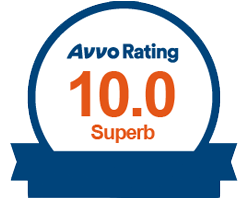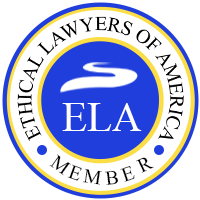DEFENDING YOUR RIGHTS
You may have a pregnancy discrimination case if you suspect that you are being treated unfavorably due to your pregnancy or your plans on becoming pregnant. Unfortunately, you are not alone.
Pregnancy Discrimination in Los Angeles
Over the past decade, more than 50,000 workers have filed pregnancy discrimination cases against their employers through the Economic Employment Opportunity Commission (EEOC).
If your employer begins cutting your work hours, making snide comments about changes in your body due to pregnancy, or taking any other adverse action against you, then it is worth speaking to an employment discrimination attorney as soon as possible.
Knowing what steps to take immediately following discrimination in the workplace can be challenging as your employer’s human resource department may not be willing to help you when you file your complaint.
Therefore, we recommend instead that you contact a pregnancy discrimination attorney who can guide you on what to do next. A seasoned attorney can also review the details of your case and inform you of the compensation that you may be eligible to receive through a pregnancy discrimination claim.
What Qualifies as Pregnancy Discrimination in California?
n California, pregnancy discrimination involves treating a pregnant employee or job applicant antagonistically due to their pregnancy status or the possibility that they may become pregnant.
Discrimination based on pregnancy status is often dependent on the stereotype that pregnant women are less capable or that they will not continue their jobs after the birth of their children.
To establish a successful claim for pregnancy discrimination, you must prove the following scenarios in your case:
- The employer must be covered by pregnancy discrimination laws: In California, this typically means that the employer has at least 5 or more active employees
- You either worked for the employer or have applied to work for them in the past: You do not have to be a full-time employee or even hired to be eligible for a pregnancy discrimination claim.
- The employer terminated, refused to hire, or took some other adverse action against an employee due to their pregnancy status: Alternatively, the employer may also be held liable if conditions at the job become so intolerable that the employee was forced to leave.
- The employee’s pregnancy status was a motivating factor for the adverse action performed by the employer: If you can prove that your pregnancy is the main cause of your dismissal or a delay to your promotion, then you likely have a pregnancy discrimination claim against your employer.
- The employee suffered damages due to the adverse action by the employer: You could be entitled to damages in court if you can prove that the adverse action taken against you by your employer caused you tangible and or noneconomic damages.
Employees must allow pregnant employees to work if they are still able to perform their jobs. For instance, employers cannot prohibit an employee from returning to their position for a predetermined length of time following the birth of their child.
Additionally, employees must hold a job open for a maternity leave or pregnancy-related absence for the same length of time as jobs held open for employees on medical or disability leave.
It is worth noting that workers with caregiving responsibilities are also protected against employment discrimination under both state and federal laws. Discrimination against working people with caregiving responsibilities outside of work can violate Title VII if the discriminatory behavior is based on sex.
The ADA prohibits employers from discriminating against employees who care for people with disabilities, including pregnancy-related disabilities.
What are the Rights of Pregnant Employees?
f you are pregnant or if you are recovering from childbirth and or pregnancy-related medical conditions, then you are protected by both federal and state anti-discrimination legislation. In California, state laws protect employees against harassment and discrimination because of an employee’s pregnancy status, race, nationality, gender, or other protected class.
A range of workers are covered by state pregnancy discrimination laws including traditional full-time employees, part-time employees, temporary employees, job applicants, paid interns, and unpaid interns.
Pregnancy discrimination is illegal. The U.S. Equal Employment Opportunity Commission (EEOC) enforces two federal laws that protect pregnant job applicants and employees. Title VII of the Civil Rights Act of 1964, amended by the Pregnancy Discrimination Act (PDA), expressly prohibits discrimination based on sex, including pregnancy discrimination. According to Title VII, pregnancy discrimination can be based on any of these characteristics:
- Current pregnancy
- Past pregnancy
- Potential pregnancy
- Pregnancy-related medical conditions
- Childbirth-related medical conditions
- Electing or choosing not to have an abortion
- Use of contraception
The Americans with Disabilities Act (ADA) is the second federal law that offers protections for pregnant job applicants and employees. The ADA prohibits workplace discrimination based on disability. Though pregnancy is not listed as a disability under the ADA, pregnancy workers may endure medical impairments related to their pregnancies that can qualify as “disabilities” under the ADA.
As such, employers may have to provide reasonable accommodations for employees with pregnancy-related disabilities. Both the ADA and Title VII cover employment discrimination in all areas of employment such as Pregnancy Discrimination Law.
Pregnant employees working for employers with 5 or more employees may be eligible for unpaid leave under California’s Pregnancy Disability Leave Act. This law permits pregnant employees to take up to four months of pregnancy leave.
State laws also provide an additional 12 weeks of unpaid leave to care for sick babies or bond with new children under the California Family Rights Act (CFRA). The leave provided by California state law runs concurrently with leave available under the federal Family Medical Leave Act (FMLA).
How do I Know if I have a Case?
Federally and statewide, it is illegal for any employer to harass or discriminate against you due to your pregnancy status. An employer cannot fire you or refuse to hire you due to your pregnancy if you are still able to perform essential functions of the position.
If you are temporarily unable to perform the duties of your position due to your pregnancy, then your employer must treat you like any other temporarily disabled employee.
Pregnant employees are permitted to ask their employers for reasonable accommodation at work. For instance, employers can offer less strenuous work, different assignments, disability leave, or unpaid leave to pregnant workers.
Pregnant workers are permitted to work as long as they can still perform their jobs. Generally, if you are being treated unfavorably due to your pregnancy or plans to become pregnant, it is likely that you have a discrimination case.
The signs of pregnancy-related discrimination are not always so obvious, however. In some instances, employers will discriminate against pregnant employees when distributing employee benefits.
There are numerous examples of employers reducing a pregnant employee’s hours so that they no longer have health insurance coverage. Discriminatory employers have also offered pregnant new hires less medical coverage than nonpregnant employees and new hires.
Any health insurance provided to you by an employee must cover any medical expenses for pregnancy-related conditions, on the same cost basis as other medical conditions. Health insurance coverage for medical expenses related to abortion procedures is not required by law except in instances where the life of the mother is in danger.
Pregnancy-related expenses should be reimbursed in the same way as those incurred from other medical conditions. Your employer’s insurance provider may limit the amounts payable, however, it cannot impose increased deductibles.
Pregnancy Discrimination Evaluator Quiz
Do you feel like you’re a victim of pregnancy discrimination? Take our quiz to find out in 90 seconds.
What are some Example Cases?
The following scenarios are some examples of pregnancy discrimination in the workplace:
- The employer refuses to hire a new employee due to their pregnancy
- The employer terminates an employee after learning of their pregnancy
- Promotions and pay raises are denied to or delayed for pregnant employees
- A pregnant employee’s promotion and or pay raise is delayed until the end of their pregnancy.
- The employer refuses to accommodate pregnancy-related disabilities
- The salaries of employees who have recently given birth, are currently pregnant, or plan to become pregnant are less than those of other employees
- The employer fires a pregnant employee shortly before their maternity leave and goes on to hire a full-time, permanent employee to replace them
- The employer terminates a pregnant employee’s position while they are on pregnancy-related leave and hires a new employee for a similar job who is not pregnant
- A pregnant worker is demoted by their employer so that they are no longer covered by the employer’s health insurance plan during their leave
- Managers mock pregnant employees for needing additional rest
- The employer restricts medical or FMLA leave
Generally, any instance where pregnant employees are explicitly or implicitly treated unfavorably is likely to be an example of pregnancy discrimination. Note that this applies to unfair treatment.
Employers are permitted to provide reasonable accommodations for pregnant employees at their request. For example, employers may offer extra bathroom breaks or assign the pregnant employee less strenuous tasks for the duration of their pregnancy.
LawLinq’s member attorneys regularly handle employment law cases, including pregnancy discrimination. In one such case, a client was promised by her employer that her job would be reinstated when she returned from maternity leave.
When she informed the company that she was ready to return, they told her that her position was terminated one week prior to the end of her leave. Later, she discovered that this was not true, and that the employer had given her position to a younger male instead. She sued them and received compensatory damages.
Is it Worth Suing?
If you believe that you may have a claim for pregnancy discrimination in the workplace, then you should contact an employment or labor attorney.
Know that both Title VII and the ADA protect employees against retaliation. It is illegal for your employer to retaliate and take adverse action against you for opposing unlawful, discriminatory practices at work.
According to federal and state law, it is also illegal for your employer to treat you unfavorably at work due to your pregnancy or plans to have a child.
If you are uncertain that you have a pregnancy discrimination case, it is worth consulting with a labor or employment attorney who can review the facts of your case and help you determine what you could receive in a discrimination claim.
If you choose to pursue a claim, make sure that you collect as much documentation and evidence as possible; keep track of everything from emails to notes from meetings where these issues were discussed.
An experienced pregnancy discrimination lawyer can use this information to help you build a strong case against your employer so that you can receive the compensation and justice that you deserve.
What are Pregnancy Discrimination Cases Worth?
Depending on your case, you could receive anywhere from $200,000 to $450,000 in a jury verdict. All pregnancy discrimination cases are different however, and case value is often dependent on a variety of factors.
Without speaking to a knowledgeable employment law attorney, it is impossible to know what you could receive in recovery for your case.
The negative effects of pregnancy discrimination in the workplace go beyond interfering with your career, your emotional, physical, and financial well-being can also be impacted.
If you present a successful lawsuit against your employer for employment discrimination, you could receive compensation for any of the following damages:
- Back Pay: You are entitled to receive what you lost in wages from the date of the discriminatory act.
- Lost Benefits: Your case may qualify for compensation for any employment benefits you potentially lost, including healthcare or profit-sharing opportunities.
- Emotional Anguish: Mistreatment and discrimination at work can cause emotional distress. The court may award you monetary damages for emotional disturbances you had to endure because of discrimination at work.
- Front Pay: Front pay includes any future earnings you may have lost as a result of pregnancy discrimination by your employer.
- Punitive Damages: Some employment discrimination cases are so egregious that courts will award punitive damages to both punish employers and to deter others from committing similar acts.
- Attorney Fees: The court may award you compensation for any legal costs that you have accrued while pursuing your claim.
How can a Pregnancy Discrimination Lawyer help me?
A Los Angeles pregnancy discrimination lawyer can help protect your rights if you’ve been treated unfairly because you’re pregnant or planning to become pregnant. If you live in the Los Angeles area and suspect that you may have a pregnancy discrimination case, do not go through your situation alone.
Contact LawLinq today. We can connect you with a reputable, high-performing employment attorney who can review your case and determine what you could receive in compensation for the damages you have suffered.
Our member attorneys are pre-screened and certified by the California State Bar. Collectively, our attorneys hold several years of experience in a range of employment cases, including cases involving pregnancy discrimination.
LawLinq can be your direct link to a seasoned attorney anywhere in the Los Angeles area. We know that finding an attorney while dealing with job termination or recovering from childbirth can be absolutely exhausting. Leave that work to us so that you can focus on your newborn child or your career search. Call us or fill out an online form today.
GET PREGNANCY DISCRIMINATION HELP NOW!
LawLinq is a California State Bar Certificated Lawyer Referral Service. We’re experts at finding the best pregnancy discrimination attorney to meet your needs and our service is FREE to consumers.
I didn't know where to find legal help...

Answered the phone at 11pm...

"I was stressed out surfing the Internet for legal help late one night and came across LawLinq…pleasantly surprised when someone answered the phone at 11PM to help me find a lawyer."
- Alex C.
Brian was a lifesaver for my case...

"Thanks to LawLinq, I met my attorney Brian who was a lifesaver with my case. He helped me navigate lots of complex processes and got the insurance company to compensate me."
- Mina M.
Recent Settlements Secured by
LawLinq Lawyer Members
-
$18.7Million
Premises Liability
The client sustained serious injuries while employed at a farm, operating the Defendant's tractor and harvesting equipment. LawLinq lawyers secured a verdict in the client’s favor, with an award of $18.7 million.
-
$10.0Million
Pedestrian Accident
The client sustained severe injuries when struck by a fast-moving vehicle. Our member lawyers secured a significant financial settlement and access to top-tier medical care and treatment.
-
$5.3Million
Class Action Verdict
A jury in Los Angeles County, California, awarded a verdict to participating clients in a class action lawsuit for Bad Faith and Breach of Contract against a prominent insurance company.
Lawyer Awards & Recognition
Our services are 100% FREE to you. Share your case details with LawLinq and we will match you with a licensed lawyer in your area who will provide you with an initial consultation at no charge. We are committed to helping you find the right lawyer for your case.
Lawlinq Lawyers Featured On...
Frequently Asked Questions
Please review our list of frequently asked questions. If you don't see the answer to your question, give us a call to discuss your legal matter.
Yes! LawLinq will refer you to a qualified, pre-screened lawyer at absolutely no charge to you.
LawLinq member lawyers will provide you with a FREE half-hour initial consultation. Please inquire with the lawyer referral regarding his or her charges for attorneys fees and costs related to your specific legal needs.
LawLinq has a powerful network of reputable, qualified and experienced lawyers in most geographic locations throughout Los Angeles County who specialize in a wide range of practice areas.
When you talk to a LawLinq team member, we’ll generally ask for the following information: first name, last name, contact information, general details about your case, charges and some basic information that will help us connect you with a lawyer who is right for your particular situation.
We typically can gather all the information we need within 5 minutes and then we’ll make every effort to connect you with a qualified lawyer right away.
Yes. We only share the information you provide us with the lawyer(s) to whom we refer you so they can follow up with you accordingly.
Get in Touch With the Best Lawyer for Your Case
LawLinq is a California State Bar Certified Lawyer Referral Service. We're experts at finding the best attorney to meet your needs, and our service is FREE to consumers.
CALL NOW: (855) 997-2558Case Types Include
Call now to connect with an attorney:
(855) 997-2558


























"I sustained injuries from a car accident that wasn’t my fault and didn’t know where to find legal help. A friend told me about LawLinq and they referred me to an excellent lawyer!"
- Jonathan G.